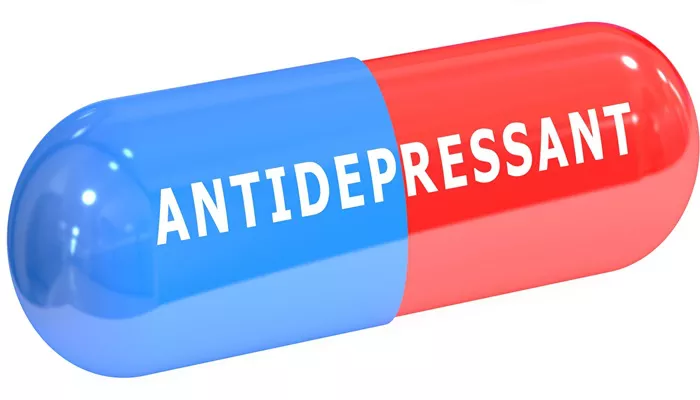Antidepressants are widely used to treat depression and anxiety disorders. However, their effects on cardiovascular health are a growing concern among patients and healthcare providers. Understanding which antidepressants are safest for the heart is crucial, especially for individuals with pre-existing heart conditions. This article explores the various classes of antidepressants, their cardiovascular effects, and identifies the safest options for heart health.
What Is Antidepressants?
Antidepressants are medications that help alleviate symptoms of depression and anxiety. They work by altering the levels of neurotransmitters in the brain, which are chemicals that transmit signals between nerve cells. There are several classes of antidepressants, including:
Selective Serotonin Reuptake Inhibitors (SSRIs): This class includes medications like sertraline (Zoloft), fluoxetine (Prozac), and escitalopram (Lexapro). SSRIs are commonly prescribed due to their favorable side effect profile.
Serotonin-Norepinephrine Reuptake Inhibitors (SNRIs): These include venlafaxine (Effexor) and duloxetine (Cymbalta). SNRIs are effective for both depression and anxiety.
Tricyclic Antidepressants (TCAs): This older class includes amitriptyline and nortriptyline. TCAs are effective but can have more side effects compared to newer antidepressants.
Monoamine Oxidase Inhibitors (MAOIs): These include phenelzine and tranylcypromine. MAOIs require dietary restrictions and are less commonly prescribed due to potential interactions.
Atypical Antidepressants: This category includes medications like bupropion (Wellbutrin) and mirtazapine (Remeron).
They have unique mechanisms of action and side effect profiles.
SEE ALSO: When to Worry About Sinus Arrhythmia
Cardiovascular Effects of Antidepressants
Antidepressants can have various effects on the cardiovascular system. Some potential cardiovascular side effects include:
Increased Heart Rate: Certain antidepressants, especially SNRIs and TCAs, can lead to an increase in heart rate (tachycardia).
Blood Pressure Changes: Some medications may cause hypertension (high blood pressure) or orthostatic hypotension (a drop in blood pressure when standing).
Arrhythmias: There is a risk of irregular heartbeats (arrhythmias) with certain antidepressants, particularly TCAs.
Myocardial Infarction Risk: Some studies suggest that specific antidepressants may increase the risk of heart attacks, especially in individuals with existing heart conditions.
Which Antidepressants Are Safest for The Heart?
When considering the safest antidepressants for heart health, SSRIs are often recommended. Research has shown that SSRIs generally have a more favorable cardiovascular profile compared to other classes of antidepressants. Here are some reasons why SSRIs are considered safer:
Lower Risk of Arrhythmias: SSRIs, such as sertraline and escitalopram, have been associated with a lower risk of arrhythmias compared to TCAs. Studies indicate that SSRIs do not significantly increase the risk of serious cardiac events.
Minimal Impact on Blood Pressure: SSRIs tend to have a minimal impact on blood pressure. This is particularly important for patients with hypertension or those at risk of cardiovascular disease.
Cardioprotective Effects: Some research suggests that SSRIs may have cardioprotective effects. For example, studies have shown that patients taking SSRIs after a heart attack have better outcomes and lower rates of subsequent cardiac events.
Favorable Side Effect Profile: SSRIs generally have a better side effect profile compared to older antidepressants. They are less likely to cause sedation, weight gain, or other side effects that can indirectly affect heart health.
Evidence Supporting SSRIs for Heart Patients
Several studies support the use of SSRIs in patients with cardiovascular conditions:
Post-Heart Attack Patients: Research has shown that SSRIs, particularly sertraline, are safe and effective for treating depression in patients who have experienced a heart attack. A study involving 369 patients found no significant differences in heart conditions between those taking sertraline and those on a placebo.
Reduced Risk of Cardiac Events: Another study indicated that patients taking SSRIs after a heart attack had a 23% reduction in life-threatening cardiovascular events. While this finding was not statistically significant, it aligns with other research suggesting that SSRIs may lower the risk of heart attacks.
Long-Term Outcomes: Long-term use of SSRIs has been associated with improved survival rates in patients with depression and cardiovascular disease. This highlights the importance of treating depression in this population.
Risks Associated with Other Antidepressants
While SSRIs are generally considered safe, other classes of antidepressants may pose higher risks for cardiovascular health:
Tricyclic Antidepressants (TCAs): TCAs can cause significant side effects, including increased heart rate and blood pressure. They are also associated with a higher risk of arrhythmias, especially in older adults or those with pre-existing heart conditions.
Monoamine Oxidase Inhibitors (MAOIs): MAOIs can lead to severe dietary restrictions and interactions with other medications. They may also increase blood pressure and pose risks for patients with cardiovascular issues.
SNRIs: While SNRIs can be effective for depression and anxiety, they may cause increased blood pressure and heart rate.
This makes them less suitable for patients with hypertension or heart disease.
Considerations for Patients with Heart Conditions
For patients with heart conditions considering antidepressant therapy, several factors should be taken into account:
Consultation with Healthcare Providers: It is crucial to discuss any existing heart conditions with your healthcare provider before starting antidepressant therapy. They can help determine the most suitable medication based on individual health needs.
Monitoring: Regular monitoring of heart health is essential, especially when starting a new antidepressant. This includes monitoring blood pressure, heart rate, and any potential side effects.
Lifestyle Modifications: In addition to medication, lifestyle changes such as diet, exercise, and stress management can significantly impact both mental and cardiovascular health.
Comprehensive Treatment Approach: Treating depression in patients with heart disease should involve a comprehensive approach, including psychotherapy and lifestyle modifications alongside medication.
Conclusion
When considering antidepressants for individuals with heart conditions, SSRIs are often the safest choice. Their favorable cardiovascular profile, lower risk of serious side effects, and potential cardioprotective effects make them a preferred option for treating depression in this population.
However, it is essential for patients to consult with their healthcare providers to determine the best treatment plan tailored to their specific needs. Regular monitoring and a comprehensive approach to treatment can help ensure both mental and cardiovascular health are effectively managed.


